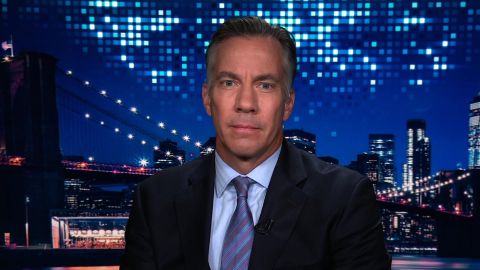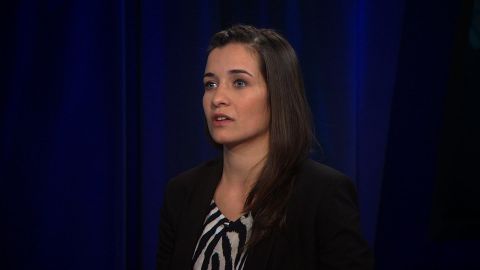Read Transcript EXPAND
CHRISTIANE AMANPOUR: You call this “For Sama.” How did that come about? Why did you decide to take this format for your daughter?
WAAD AL-KATEAB, CO-DIRECTOR, “FOR SAMA”: It was something we’ve — I knew that from the beginning but we were discovering this through the process that we did like for two years. We felt that all the conversation through the material was telling everything that this is for Sama. There was like a natural conversation, as anyone around the world, every one of us like speaks with our child even if we still just pregnant. And it was just like kind of the conversation, natural one, which it was through the material itself. And toward my daughter and towards something. You have seen it too. So —
EDWARD WATTS, CO-DIRECTOR, “FOR SAMA”: Yes. It was really like breathing through the footage that that was — yes, that that was what the footage was about at heart, was the relationship between Waad and Sama.
AMANPOUR: It was. But did you make a decision to make that and to keep going back and forth? Because if you look at the trailer and, obviously, we’ve seen your reportage through the war, it is relentlessly really dark, it’s a terrible war. The Siege of Aleppo is a terrible, terrible thing. The bodies piled up. What did you think when you had to take all her footage and make it palatable?
WATTS: Well, you know, the thing that was so incredible about what this woman achieved and what she managed to film was the fact that her footage throughout this huge archive, when I saw it for the first time, I saw the full spectrum of human life in this kind of conflict situation. So, the horror was there, the human suffering, as you talked about, but also so much joy, so much about the spirit of people in this kind of situations. So, it was more just trying to say, like, “It was so much. How can we squeeze all of this life that was in the footage in the archive and contain it in a manageable form for the cinema?”
AMANPOUR: So, in the opening, sort of narration of yours, you say, “I made this film for you.” You’re addressing your daughter. “I need you to understand why me and your father made the choices that we did. What we were fighting for.” What were your fighting for? Why — I mean, later on in the film you say, “Will you forgive me? Will you forgive me for staying and, in fact, for leaving?”
AL-KATEAB: Yes. It was — we have fears as Syrians all the time about our story will not be told in our voices. We were all like against this — the propaganda that the Assad regime and the Russians were trying to just destroy the dream that we have of freedom and of dignity. And like we were — every parents in Syria and everyone who lived through the first year and two years of the peaceful demonstration, we have that fear that maybe this will not be really reached through the next generation. So, in one part of this, I really wanted to tell her about like what we then went through, how we started this revolution and why.
About This Episode EXPAND
Jim Sciutto & Steve Hall join Christiane Amanpour to talk John Bolton’s ousting; Waad Al-Kateab & Edward Watts discuss their documentary “For Sama;” & Sarah M. Broom talks about her home city of New Orleans and her new memoir, “The Yellow House,” with Walter Isaacson.
LEARN MORE


